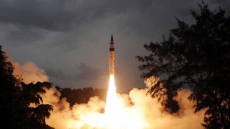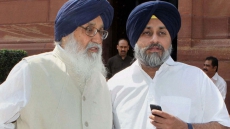By 2030, the average citizen of planet Earth will be an Indian man in his mid-20s. But few people in the international creative industries realize this and so are still creating books, movies and music for the shrinking, over-saturated Western market. To help fix the problem, authors in Asia are setting up a new book prize - and creative people in India are tipped to be big winners.
Each year, the winner of the World Readers' Award will get $10,000 and a golden egg trophy presented to them in an extraordinary building in Hong Kong shaped like a giant golden egg.
How will a book prize change the mindset of creative people around the world?
"Books are the basis of the main global forms of entertainment. Not only is it a huge industry by itself, but the main properties in the movie and game industry - think of Harry Potter or The Hunger Games or The Hobbit - are based on books," said organizer Nury Vittachi, a Sri Lankan author and an IANS columnist based here.
To prompt creative people around the world to write stories set in under-used locations, such as Asia, Africa, Latin America and so on, the World Readers' Award will be open to all nationalities, and will favour books with a global perspective rather than the Western focus which is currently common.
Writers in places such as India, which has a high standard of English and a long literary tradition, have an advantage.
Judging will be coordinated by the Asia Pacific Writers and Translators, an international authors' organization.
"In practice, what this means is that stories featuring stereotypical James Bond-style heroes working from offices in MI5 are less likely to find favour with the judges than tales set in more interesting locations with more original ideas," said Vittachi.
Literary editors around the world have responded favourably. "Mr. Vittachi and his co-conspirators have served notice on the literary prize world. In the golden age of the reader, Pulitzer, Booker, Costa and the rest will have to acknowledge that the borders of the literary world can no longer be policed in the traditional way," said Robert McCrum, one of Britain's best known literary editors.
International publishers and authors are also getting excited, as the book business is struggling on the Western side of the planet, but still growing in the east.
"The ultimate aim will be to solve a big mystery: when readers outside the western world tire of reading translations of Harry Potter, what will they want to read?" asked Xu Xi, a novelist based in Hong Kong.
The answer is a seriously big deal. The value of the global book industry has been estimated at $130 billion a year, larger than any other creative industry sector except television. The global entertainment and media industry will become a $2 trillion industry in 2016, according to PricewaterhouseCoopers' research.
The 2015 World Readers' Award will go to the best published book with a global perspective, and the 2016 award will go to an unpublished manuscript. The award is being coordinated through a website:
www.worldreadersaward.com.
"The world is filled with geopolitical thrillers set in Washington and noirish crime novels set in Sweden," said Isagani Cruz, a Manila-based author, and one of the organizers, adding: "But that's not the world as it actually is."
The "typical" human being is a Chinese male aged 28, according to research by National Geographic. In 2030, the typical human will be an Indian man. What these individuals find entertaining will underpin the entertainment industry of the future, creating valuable entertainment franchises.
The prize will be presented at the Hong Kong Science Park, which can seat almost 300 people in a giant egg-shaped building.
The Park's CEO, Allen Ma, said: "Humanity's greatest scientific resources are not test tubes and silicon chips, but the incredible power of the human mind. As Einstein loved to say, imagination is more important than knowledge."





